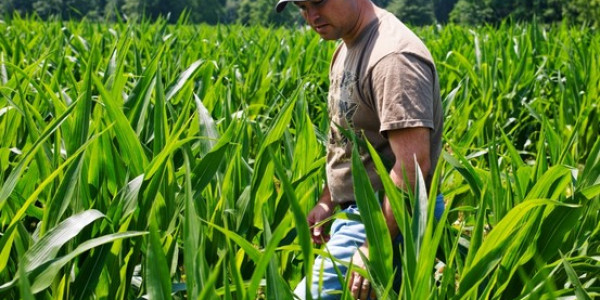Legislation Fails to Engage at Grass-Roots Level as Farmers Reap Big Profits MARK PETERS and COREY BOLES For decades, the farm bill has served as the main vehicle for U.S. agriculture policy, getting renewed about every five years to keep billions of dollars flowing to farm subsidies and rural development programs. But lobbyists and lawmakers say the measure is drawing less grass-roots support from the Farm Belt this time around as the House struggles to pass the measure for a second straight year. Philip Scott Andrews for The Wall Street Journal Rep. Marlin Stutzman on his farm outside Howe, Ind. He is pushing to separate the nutrition programs from the agricultural part of the farm bill. [/url] “I think there are a number of farmers asking what do we need a farm bill for,” said Mr. Wolheter, whose office is adorned with dozens of hats from tractor and seed companies. “The federal debt is the real concern.” In certain slices of agriculture, the bill is attracting strong interest. Growers of vegetables, cotton, peanut and rice have pushed for an expansion of federal subsidies for crop insurance. In the dairy sector, a fight has erupted between dairy farmers and dairy-product producers over government price supports. The safety net for farmers is changing from automatic payments to farmers regardless of their economic circumstances, to crop insurance and other programs. Both the House and Senate support eliminating $5 billion a year in the direct payments to farmers, and would expand federal subsidies toward the cost of crop insurance. And so farmers in this corner of Indiana are questioning the composition of the bill like never before. “There is more concern about what they’re doing in other areas than the agricultural end of it,” said Stanley Sickafoose, who farms 6,500 acres of corn and soybeans. U.S. Rep. Marlin Stutzman, who represents the region and farms 4,000 acres with his father and brothers, voted against the farm bill and found support from farmers as he returned home for the Fourth of July break. The Indiana Republican is pushing in Congress to split off the nutrition programs from the core farm bill. Splitting the legislation in the House would complicate negotiations over a final bill in the Senate, where the Democratic leadership in control of the chamber is staunchly opposed to a breakup. Rep. Collin Peterson, who represents a district in rural Minnesota and is the top Democrat on the House Agriculture Committee, has warned that if the farm bill is split, no House Democrats would vote for it, and it would die in negotiations with the Senate anyway. He says he fears that without a farm bill, growers would become more exposed to a sustained decline in prices. Farmers “are very quick to forget the bad times,” Mr. Peterson said. “Right now they’re not too worried about this.” Write to Mark Peters at mark.peters@dowjones.com and Corey Boles at corey.boles@dowjones.com A version of this article appeared July 10, 2013, on page A6 in the U.S. edition of The Wall Street Journal, with the headline: As Agriculture Booms, Farm Bill Gets Yawns. Taylor Scott International
As Agriculture Booms, Farm Bill Gets Yawns

This entry was posted in Investment, investments, News, Property, Taylor Scott International, TSI, Uk and tagged agriculture, calendar, chat, congress, corey, democrat, farm, house, investment, investments, nutrition, property. Bookmark the permalink.







